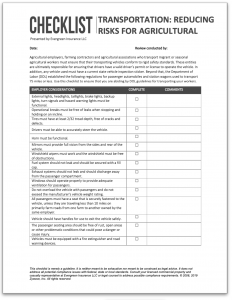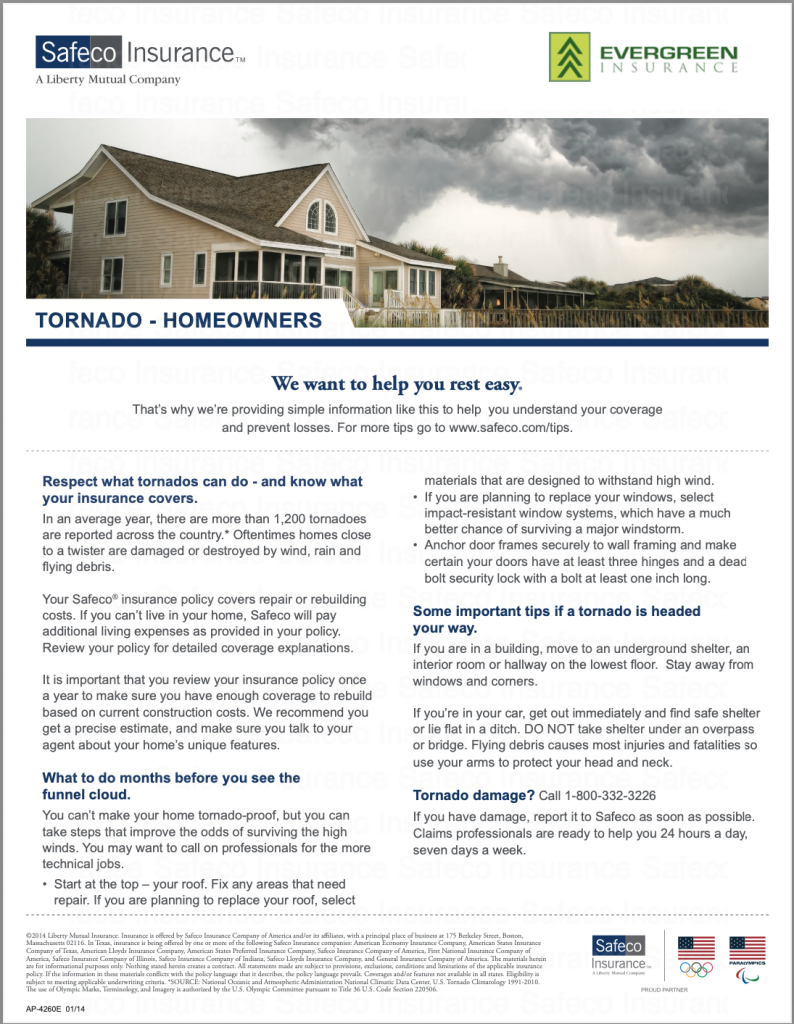Agricultural employers, farming contractors, and agricultural associations who transport migrant or seasonal agricultural workers must ensure that their transporting vehicles conform to rigid safety standards. These entities are ultimately responsible for ensuring that drivers have a valid driver’s permit or license to operate the vehicle. In addition, any vehicle used must have a current state vehicle inspection sticker.
Beyond that, the Department of Labor (DOL) established regulations for passenger automobiles and station wagons used to transport 75 miles or less. Use our checklist to ensure that you are abiding by DOL guidelines for transporting your workers.
Click the image to view and download the checklist. For information about farm and agribusiness insurance, contact us.

This checklist is merely a guideline. It is neither meant to be exhaustive nor meant to be construed as legal advice. It does not address all potential compliance issues with federal, state or local standards. Consult your licensed commercial property and casualty representative at Evergreen Insurance LLC or legal counsel to address possible compliance requirements. © 2008, 2019 Zywave, Inc. All rights reserved.



